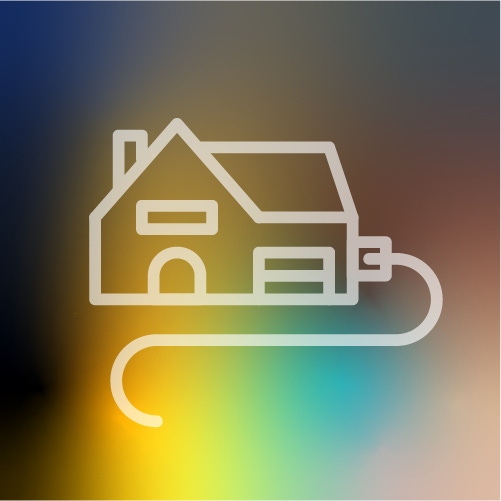More than a quarter of German households can now access fiber, but work lies ahead to meet the target of full gigabit coverage by 2030.

A relatively new German fiber network operator called Plusnet (no, not the BT-owned variant) has been doing the media rounds in recent months with the declaration that fiber deployment in Germany is finally picking up speed.
To be sure, Europe's biggest economy has been something of a laggard in terms of total premises passed by fiber-to-the-home (FTTH) networks.
According to the FTTH Council Europe's most recent statistics, just 22.1% of premises in Germany had been passed by full fiber networks by September 2021, ranking it third from last in Europe. By comparison, coverage in market leaders Latvia and Spain stood at 89% and 88.9% respectively.
Figure 1:  More than a quarter of German households can now access fiber, but work lies ahead to meet the target of full gigabit coverage by 2030.
More than a quarter of German households can now access fiber, but work lies ahead to meet the target of full gigabit coverage by 2030.
(Source: the lightwriter/Alamy Stock Photo)
In a recent interview with the snappily named German tech site IT-Zoom, Plusnet CEO Ulrich Hoffmann noted that the pace of deployment is accelerating, or in his own words, "der Gigabitausbau hat endlich Fahrt aufgenommen."
He pointed to the fact that fiber connections exceeded ten million in June this year, while Germany is now among the top three in Europe in terms of fiber deployment growth (behind France and the UK).
A June 2022 report from German broadband association BREKO certainly seems to back Hoffmann's assessment. In fact, by mid-2022 more than a quarter of German households were able to access a fiber connection.
The figures provided by BREKO are 26% fiber coverage and 12.7 million fiber connections, of which 8.8 million or 71% were built by alternative network operators (ie not Deutsche Telekom). Furthermore, 4.4 million fiber connections have been deployed since the end of 2020, meaning that deployment speed has continued to accelerate in the past 18 months.
Germany's initial sluggishness on fiber is owing to a wide number of factors. There was the early focus by Deutsche Telekom – now a full fiber convert – on vectoring, for example. Then there is the fact that Germany has 16 federal states, around 12,000 authorities with different requirements and forms, onerous planning requirements and restrictions, slow approval processes, and more besides.
Optimistic goals
In July, the German government unveiled a new strategy that it hopes will drive the deployment of "gigabit" broadband throughout the nation in the coming years, with targets to provide FTTH and 5G wherever people live, work and travel by 2030. Interim goals also include the aim of providing FTTH to at least 50% of homes by 2025.
Such goals are widely regarded as optimistic, despite the recent uptick. BREKO itself comments that the outlook for further deployment is "generally positive but remains associated with risks.
For 2025, the BREKO Market Study forecasts a fiber coverage between 40% and 53%, opposed to the federal government's target to connect 50% of households and businesses. The final outcome will depend more than ever on the political framework and future developments in the Russian war in Ukraine, which are currently difficult to assess."
As well as listing the need for political support and the strategic use of public funding, BREKO also stressed that the significance of open access agreements is increasing. Indeed, more than 80% of the 230 network operators grouped under BREKO now offer open access.
Want to know more? Sign up to get our dedicated newsletters direct to your inbox.
This takes us back to Plusnet, a Cologne-based operator that was acquired by German utility EnBW in 2019. In December 2020, EnBW and Plusnet acquired active fiber network technology from GasLINE stretching over 6,500km.
Now, the company has just signed up as the first open access partner of GlasfaserPlus, the wholesale broadband joint venture between Deutsche Telekom and Australia's IFM Investors. It already has an agreement to use excess capacity on Deutsche Bahn's fiber network along railway lines.
At the same time, Plusnet has bigger ideas up its sleeve. It is building a platform called Netbridge that aims to create a "virtual Gigabit network" in Germany through the integration of local and regional fiber networks.
Indeed, the fact that over 230 operators are grouped under BREKO alone provides an indication of just how many operators are currently active in Germany. As explained by Hoffmann, the aggregation of fiber optic networks could play a key role in helping Germany to achieve its targets.
Related posts:
— Anne Morris, contributing editor, special to Light Reading
Read more about:
EuropeAbout the Author(s)
You May Also Like










